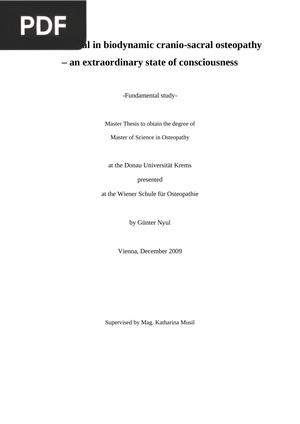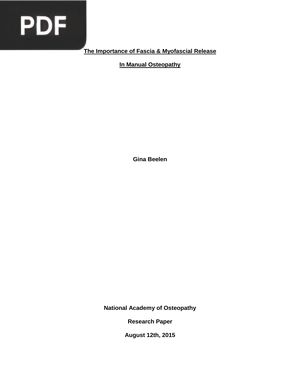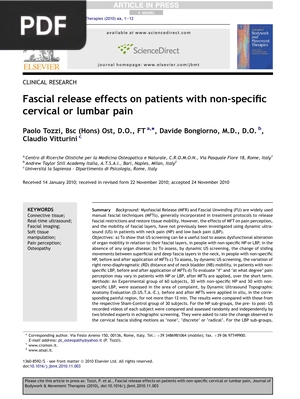Visceral Manipulation - Study Guide Sampler
Author: The Barral Institute
*Wait a few seconds for the document to load, the time may vary depending on your internet connection. If you prefer, you can download the file by clicking on the link below.
Document Sheet
Title: Visceral Manipulation – Study Guide Sampler
Author: The Barral Institute
Pages: 47
File size: 3.75 MB
Format: PDF









































